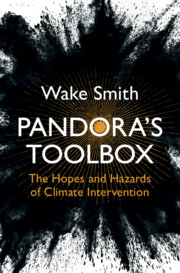Refine search
Actions for selected content:
7 results
Chapter 5 - Kantian Ethics and Sustainability
-
- Book:
- Kant and Environmental Philosophy
- Published online:
- 01 November 2025
- Print publication:
- 20 November 2025, pp 129-152
-
- Chapter
- Export citation
Chapter 6 - What Is the Human Being in the Anthropocene?
-
- Book:
- Kant and Environmental Philosophy
- Published online:
- 01 November 2025
- Print publication:
- 20 November 2025, pp 153-184
-
- Chapter
- Export citation
Climate Esoteric Morality and the Problem of Inconsequentialism
-
- Article
-
- You have access
- Open access
- HTML
- Export citation
2 - Climate Ethics and Intergenerational Reciprocity in Indigenous Philosophies
- from Part I - Indigenous Philosophies on Justice between Generations
-
-
- Book:
- Intercultural Philosophy and Environmental Justice between Generations
- Published online:
- 14 March 2024
- Print publication:
- 21 March 2024, pp 33-58
-
- Chapter
- Export citation
Introduction
-
-
- Book:
- Intercultural Philosophy and Environmental Justice between Generations
- Published online:
- 14 March 2024
- Print publication:
- 21 March 2024, pp 1-14
-
- Chapter
- Export citation
The NET effect: negative emissions technologies and the need–efficiency trade-off
- Part of
-
- Journal:
- Global Sustainability / Volume 6 / 2023
- Published online by Cambridge University Press:
- 22 February 2023, e5
-
- Article
-
- You have access
- Open access
- HTML
- Export citation

Pandora's Toolbox
- The Hopes and Hazards of Climate Intervention
-
- Published online:
- 24 February 2022
- Print publication:
- 24 March 2022
